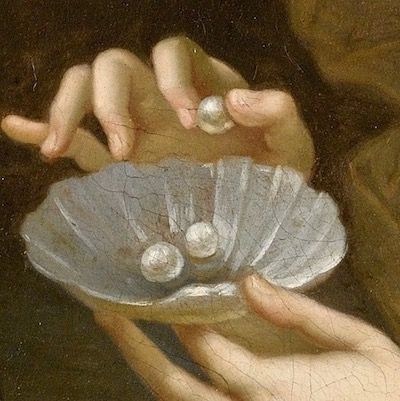Gratitude is an expression of appreciation and gratitude for what one has. It is the recognition of a value independent of material value....
Gratitude is an expression of appreciation and gratitude for what one has. It is the recognition of a value independent of material value. This social feeling strengthens relationships and stems from the survival impact of helping others in primitive times and receiving help in return. Research suggests that certain areas of the brain serve to experience and express gratitude. Brain scans show that when people are faced with a situation that requires them to express their gratitude, they develop a sensitivity to future experiences of gratitude, creating a lasting change in their brains.
Gratitude is an emotion that makes one feel happier, it is also a mood and a personality trait. Some of us are more inclined to be grateful as a daily habit. When the results of the research are examined, we will share with you the indicators of how gratitude really works in our minds and bodies.
1- Gratitude allows to be grateful for today and magnifies positive emotions.
Research on emotions shows that the effects of positive emotions can fade quickly. Our emotional systems love innovation and change, so we quickly adapt to new and positive living conditions. So after a very short time, new car, new wife, new house doesn't feel so new and exciting anymore.
But gratitude makes us appreciate the value of something. That way, we can get more benefits out of that thing. At the same time, gratitude allows us to participate more in life. We can become more aware of the positive aspects of our experiences and increase our enjoyment of life. Instead of getting used to things that go their way and getting bored, we can appreciate their goodness.

2. It inhibits negative emotions such as gratitude, jealousy, anger, regret - emotions that can destroy our happiness.
Gratitude, including a 2008 study by psychologist Alex Wood in the Journal of Research in Personality, predicts that gratitude can reduce the frequency and duration of episodes of depression. Because, as a matter of fact, we cannot feel jealous and grateful at the same time, because jealousy and gratitude are incompatible emotions. If you're grateful, you won't be angry at someone who has something you don't have. Studies show that people with high levels of gratitude have low levels of anger and jealousy.
3. Grateful people are more resilient to stress.
Numerous studies show that if people have a grateful disposition in the face of trauma, adversity, and suffering, they will recover more quickly. Gratitude gives people a perspective that can make sense of negative experiences and help protect them from negative effects such as post-traumatic stress and persistent anxiety.
4. Grateful people have a higher sense of self-worth.
When you are grateful, you recognize and appreciate something someone else has done for you. When you start noticing the contributions others make to your life, you realize that other people value you, and you can positively change the way you see yourself.
You don't need to share for gratitude to benefit you!
In one study, respondents who were asked to write letters of gratitude were told not to send the letters to the recipient. Those who send their letters as well as those who do not see the benefits of being grateful. This shows that the benefits of writing a gratitude letter do not depend entirely on conveying that gratitude to another person, but simply experiencing that gratitude is effective.
So, if you're thinking of writing a letter of gratitude to someone but aren't sure about sending it, you can still write it. Writing the letter can help you appreciate the people in your life and take your focus away from negative feelings and thoughts.

The benefits of gratitude unfold over time
It is important to note that the positive effects of gratitude on mental health do not appear immediately, but gradually increase over time. In studies, they did not differ in their mental health levels one week after the end of the writing activities, but reported better mental health four weeks after the activity than the others. Moreover, in the study conducted after 12 weeks, it was seen that the positive effects increased even more.
At the beginning of your gratitude process, you may not feel dramatically better right after your practice. Be patient and remember that the benefits of gratitude can take time to kick in.
Generally, studies aim to gain gratitude by having people keep a "gratitude diary" in which they regularly record what they are grateful for.
Although gratitude journals and other gratitude practices often seem very simple, they can be very effective. A study of more than a thousand people ages eight to 80 lists the areas where gratitude finds the greatest benefits:
Physical
• A stronger immune system
• Less afflicted by aches and pains
• Lower blood pressure
• Getting more exercise and Paying attention to health
• Sleeping healthier and better
Psychological
• Increase in positive emotions
• Being more alive and fit
• Getting more joy and pleasure from life
• Increase in optimism and happiness
Social
• Being more helpful, generous and compassionate
• Being more forgiving
• Being more extrovert
• Feeling less lonely.
The social benefits are particularly important because gratitude is an emotion that strengthens social relationships. One of the components of gratitude is appreciation of kindness. This does not mean that life is perfect or ignore complaints, challenges and difficulties. But when we look at life as a whole, gratitude encourages us to recognize and identify some good in our lives.
The second component is figuring out where that goodness comes from. We recognize that the sources of this goodness are outside ourselves. Because true gratitude involves a humble dependence on others, we recognize that other people have given us many gifts, large and small, that will help us achieve goodness in our lives.

Challenges that can become an obstacle to gratitude
Just because gratitude is a good thing doesn't always mean it's easy. Practicing gratitude can conflict with our entrenched psychological tendencies. One of these is “self-serving bias.” This occurs as a defense mechanism where when good things happen we think it's because of something we did, and when bad things happen we blame the circumstances.
Gratitude is quite the opposite of self-serving prejudice because when we are grateful, other people are appreciated for our success. Being able to say, “I have accomplished some myself, but my family has given me this opportunity” or “My teachers, mentors, friends have helped me along the way” is very different from a self-serving prejudice. Gratitude also runs counter to our need to keep our environment in check. From time to time, it is necessary to be grateful for what we have by accepting life as it is.
Developing gratitude
1- Keeping a gratitude journal. That might mean listing five things you are grateful for each week. With this app, you can consciously focus your attention on developing more grateful thoughts and eliminating ungrateful thoughts. It can help you see the gifts in life as new and exciting.
2- As another gratitude exercise, you can practice counting your “haves” on a regular basis, perhaps first thing in the morning, perhaps in the evening. What are you grateful for today? You can think about it or write it down on a piece of paper, depending on your preference.
3- One method that can be particularly effective when working with children whose abstract thinking skills are not yet developed is to use concrete reminders. For example, you can get a “gratification jar” and put the coins in your pocket and focus on being grateful every time. When the jar is full at the end of the day, you can donate the money to a needy person or community. Practices like this not only teach children the importance of gratitude, they can also show that gratitude drives people to give to others as we receive from others.










No comments